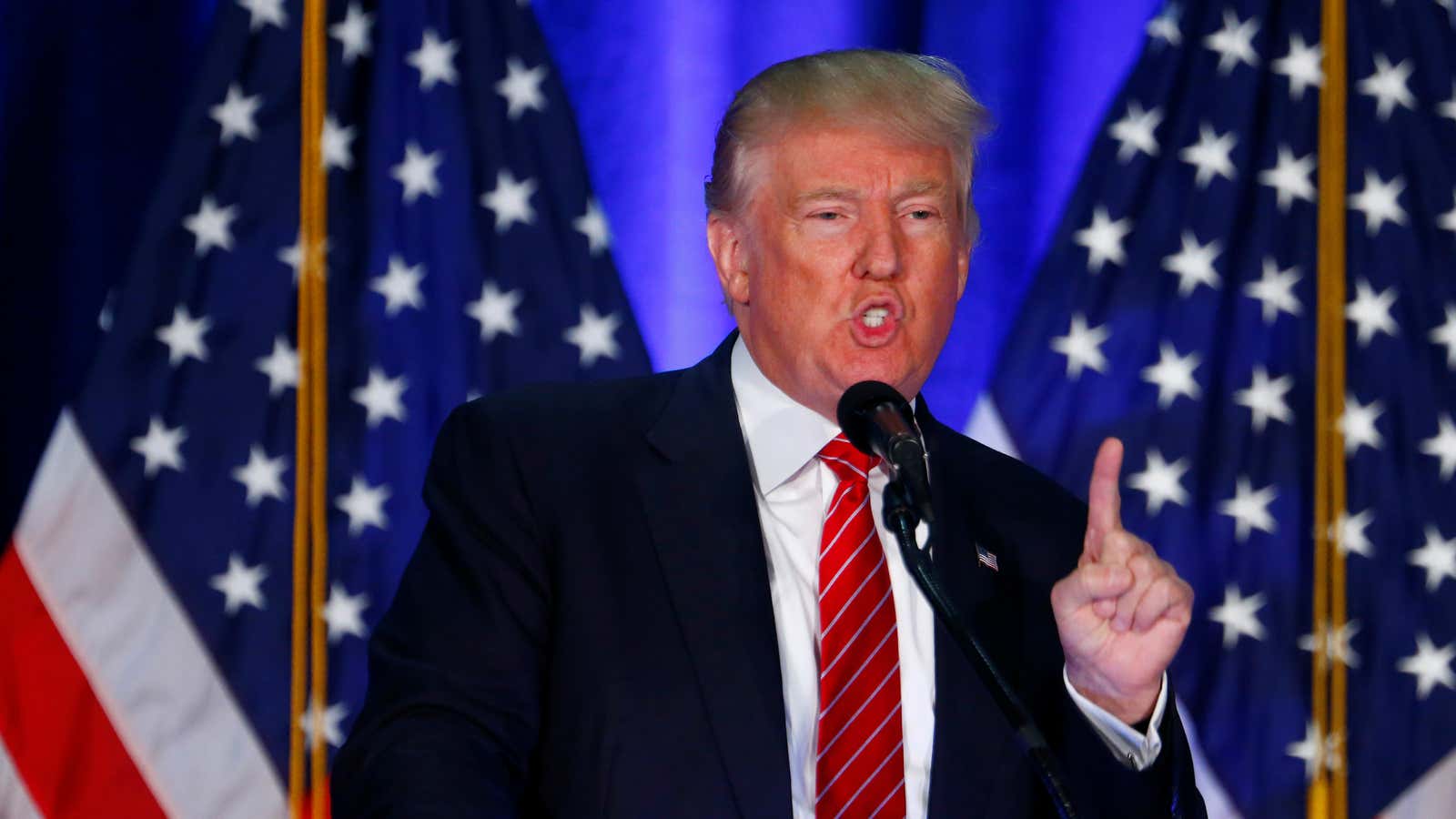Donald Trump is the voice of African Americans—even if they don’t think so. The marketing mogul put forth this thesis in a speech on Aug. 16 in Milwaukee, where the police shooting of a black man has sparked days of violent rioting. Addressing inner city African American voters, he argued that he alone can revive their communities by “restoring law and order.”
Unspool his speech’s logic, however, and you’ll find a pernicious subtext—one that isn’t geared toward attracting black voters at all.
Trump’s big thesis was that the Democrats have “failed and betrayed” African Americans. Not least is Hillary Clinton, whom he accused of ”bigotry” for “pandering and talking down to communities of color,” seeing them “only as votes.” By continuing to support them, Trump said, African Americans let Democrats take advantage of them. The cause of the Milwaukee riots and inner city crime more generally is the Democrats’ deliberate and systematic weakening of police forces.
“Our job is to make life more comfortable for the African American parent who wants their kids to be able to safely—safely—walk the streets,” said Trump. “They want safety. My opponent would rather protect the offender than the victim—big problem in our society.”
Black voters, Trump implied, are too naive and backward to discern their own interests. His rhetoric on police shootings of black men and the resulting protests made this condescension even starker.
“Those peddling the narrative of cops as a racist force in our society—a narrative supported with a nod by my opponent—share directly in the responsibility for the unrest in Milwaukee, and many other places within our country,” said Trump. “The quiet voices in our society, not the loudest demonstrators, need to have their demands heard.”
In other words, black families that worry that police might shoot their family members are simply being duped by the Democrats. And it’s impossible that African Americans who haven’t protested might share views with those who do.
Round all that up and it’s perhaps not the most a compelling bid for black community support. Then again, Trump didn’t seem to be talking to black voters as much as about them.
“The African American community has been taken for granted for decades by the Democratic party,” he said. “And look how they’re doing.”
This wasn’t the only example; throughout his speech, he lapsed repeatedly from “you” into “they.”
The weird thing is, Trump risked cannibalizing attention from his national security speech the day before. And he presented no new policy ideas. So why give a speech at all?
Of course, “law and order” is his biggest theme, and the violent, destructive Milwaukee riots were a chance to discredit peaceful protests against police shootings. His speech’s attention to black communities also lets his overwhelmingly white supporters dismiss charges that Trump is racist.
More importantly, though, Trump further fleshed out his vision of America in which he claims a monopoly on moral authority over representative democracy. To the good-versus-bad, “real Americans”-versus-“the elite” duality he had previously articulated, he added a third category: the innocent but benighted. If he loses—as looks increasingly likely—his supporters can blame black voters hoodwinked by “Crooked Hillary” (along with the “rigged” electoral system). That will keep alive the conviction among millions of mostly white Americans that Trump doesn’t need votes to speak for the “silent majority,” the real Americans—even the ones who are too ignorant to know what’s good for them.




